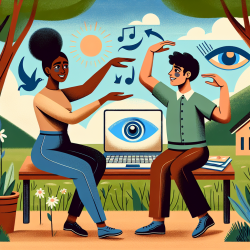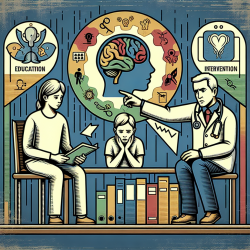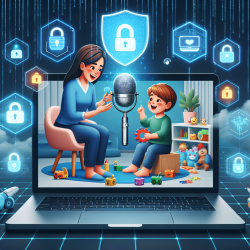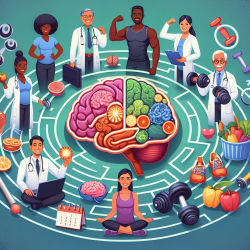At TinyEYE, we are dedicated to providing the best possible online therapy services to schools, ensuring children receive the support they need. A recent research article, Psychotherapy in the Framework of Embodied Cognition—Does Interpersonal Synchrony Influence Therapy Success?, offers valuable insights into how therapists can improve their practice by focusing on interpersonal synchrony within the therapeutic setting.
Understanding Interpersonal Synchrony
Interpersonal synchrony refers to the coordination of movements and neural activities between individuals during interactions. This synchronization is not just a physical phenomenon but also has neural correlates, as shown in studies using techniques like EEG, fMRI, and fNIRS. Synchrony can occur both consciously and subconsciously and plays a crucial role in social interactions and relationships.
The Role of Embodied Cognition
The framework of Embodied Cognition posits that our cognitive processes are deeply rooted in the body's interactions with the environment. This means that thinking is not just a brain activity but involves the whole body. In the context of psychotherapy, this framework suggests that bodily and neural synchrony between therapist and patient can significantly impact therapy outcomes.
Key Findings from the Research
- Higher synchrony between therapist and patient correlates with better therapy outcomes and lower drop-out rates.
- Patients who take a leading role in the first few sessions are more likely to drop out early.
- Neural synchrony can be voluntarily influenced through techniques like neurofeedback, potentially enhancing therapy success.
Practical Applications for Therapists
Based on these findings, therapists can take several steps to improve their practice:
- Monitor Non-Verbal Cues: Pay close attention to the non-verbal behavior of both the therapist and the patient. Synchronizing movements can build a stronger therapeutic alliance.
- Role Assignment: Be mindful of the roles assumed by both parties during sessions. Encourage a balanced interaction where neither party dominates excessively.
- Utilize Neurofeedback: Consider incorporating neurofeedback techniques to help patients achieve better neural synchrony, potentially improving therapy outcomes.
Encouraging Further Research
While the current research provides valuable insights, there is still much to explore. Future studies could focus on the specific neural mechanisms underlying synchrony and how these can be leveraged to enhance therapy success. As technology advances, portable devices like EEG caps could make it easier to measure brain activity in more natural settings, providing even deeper insights into the role of synchrony in psychotherapy.
Conclusion
Interpersonal synchrony, both physical and neural, plays a crucial role in the success of psychotherapy. By adopting a data-driven approach and leveraging the framework of Embodied Cognition, therapists can enhance their practice and create better outcomes for their patients. As we continue to explore this fascinating area of research, the potential for improving therapeutic interventions and reducing healthcare costs becomes increasingly evident.
To read the original research paper, please follow this link: Psychotherapy in the Framework of Embodied Cognition—Does Interpersonal Synchrony Influence Therapy Success?










